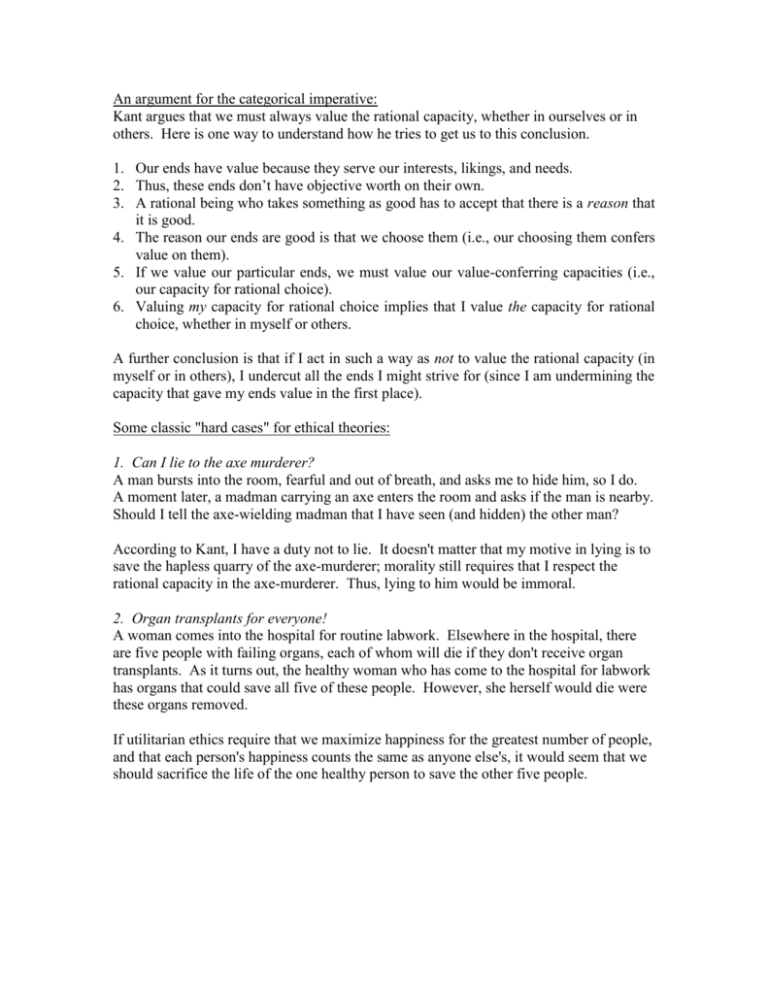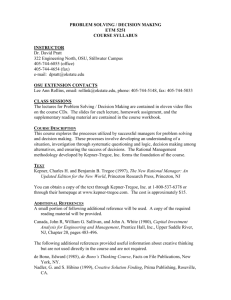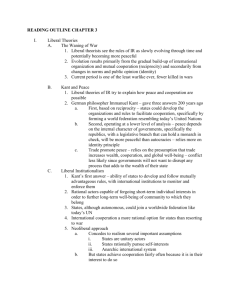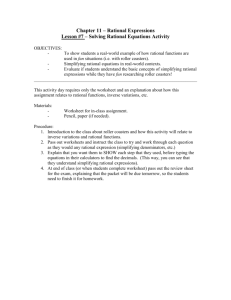Kant argues that we must always value the rational capacity
advertisement

An argument for the categorical imperative: Kant argues that we must always value the rational capacity, whether in ourselves or in others. Here is one way to understand how he tries to get us to this conclusion. 1. Our ends have value because they serve our interests, likings, and needs. 2. Thus, these ends don’t have objective worth on their own. 3. A rational being who takes something as good has to accept that there is a reason that it is good. 4. The reason our ends are good is that we choose them (i.e., our choosing them confers value on them). 5. If we value our particular ends, we must value our value-conferring capacities (i.e., our capacity for rational choice). 6. Valuing my capacity for rational choice implies that I value the capacity for rational choice, whether in myself or others. A further conclusion is that if I act in such a way as not to value the rational capacity (in myself or in others), I undercut all the ends I might strive for (since I am undermining the capacity that gave my ends value in the first place). Some classic "hard cases" for ethical theories: 1. Can I lie to the axe murderer? A man bursts into the room, fearful and out of breath, and asks me to hide him, so I do. A moment later, a madman carrying an axe enters the room and asks if the man is nearby. Should I tell the axe-wielding madman that I have seen (and hidden) the other man? According to Kant, I have a duty not to lie. It doesn't matter that my motive in lying is to save the hapless quarry of the axe-murderer; morality still requires that I respect the rational capacity in the axe-murderer. Thus, lying to him would be immoral. 2. Organ transplants for everyone! A woman comes into the hospital for routine labwork. Elsewhere in the hospital, there are five people with failing organs, each of whom will die if they don't receive organ transplants. As it turns out, the healthy woman who has come to the hospital for labwork has organs that could save all five of these people. However, she herself would die were these organs removed. If utilitarian ethics require that we maximize happiness for the greatest number of people, and that each person's happiness counts the same as anyone else's, it would seem that we should sacrifice the life of the one healthy person to save the other five people.











